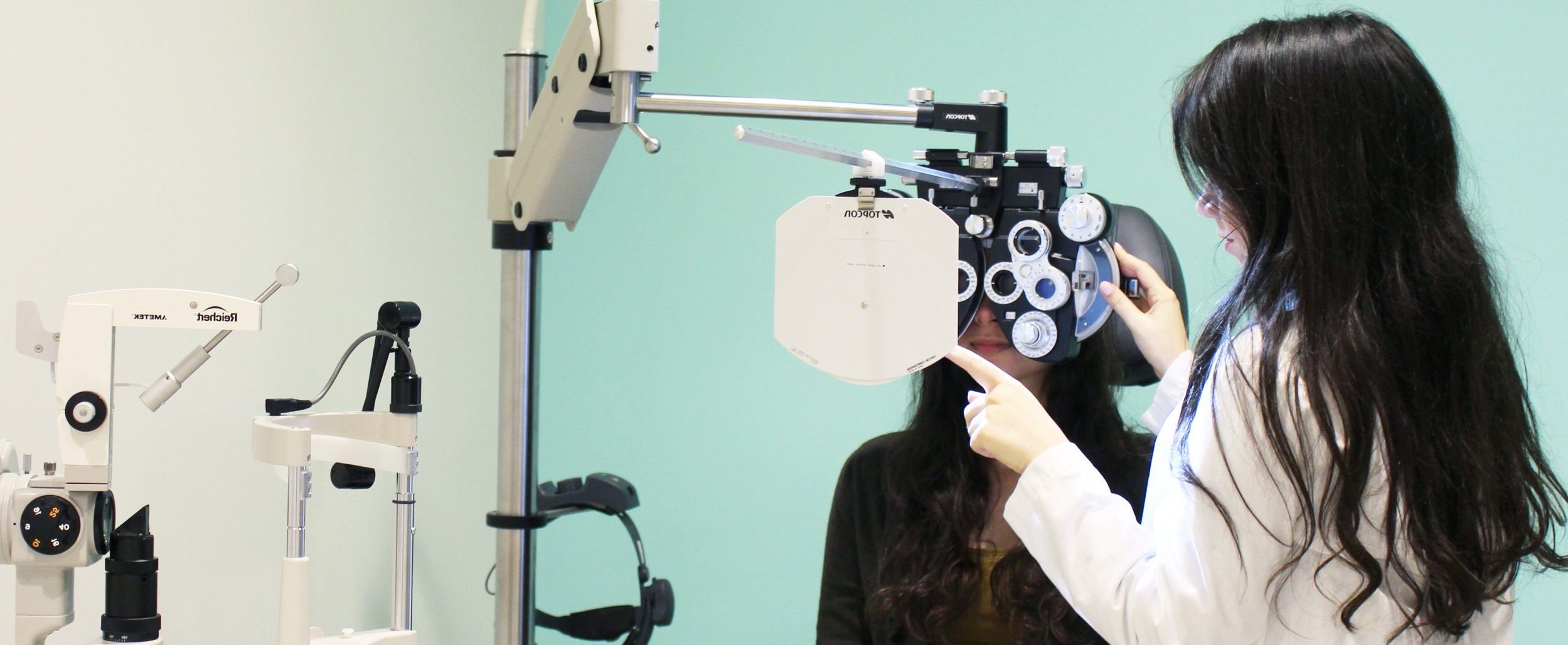
We perform comprehensive vision evaluations beyond standard eye exams. We test for binocular vision disorder, visual processing disorder, strabismus, amblyopia, neuro-optometric testing, and sports vision testing.
Assessments

-
At our office, we care about your eyesight - but also how that vision affects your learning abilities, motor skills, and overall daily functioning. We offer a holistic, functional vision examination that helps us evaluate how visual challenges may be affecting your (or your child’s) academic abilities, coordination and athletic skills, and general everyday life experiences. We go beyond standard testing to check developmental and behavioral needs are being met.
Our Functional Vision exams may cover:
Visual Acuity
Eye Tracking
Eye Focusing
Eye Teaming/ Binocular Vision
Depth Perception
Peripheral Vision
Eye Health
-
Visual Perception occurs through the brain. If you or your child struggle with reading, academics, or work, this will help assess if there is a problem with how visual perception and learning is occurring through the brain. This evaluation usually includes standardized tests, lasting about 1.5-2 hours. All of this testing allows us to create an individualized therapy plan to treat issues discovered. At the completion of testing the doctor will score, analyze and write a report which includes a detailed explanation of areas tested during the functional vision examination and visual information processing evaluation. The doctor will schedule a meeting with you to go over the testing and recommended a personalized treatment plan.
Areas tested may include:
Laterality and Directionality
Visual Motor Integration
Visual Sequential Memory
Visual Spatial Relationships
Visual Closure
Visual Discrimination
Visual Learning
-
Having to do with binocular vision and eye alignment, strabismus (an eye turn), and amblyopia (reduced visual acuity in one or both eyes) affect depth perception - seeing well in 3-D and in everyday life. Our in depth evaluation will help us determine the correct treatment path, which may include special lenses, prisms, and vision therapy - a non-invasive approach to re-training the eyes to work better together as a team. Although people traditionally seek treatment in childhood, we now know that because of the neuroplasticity of the brain, vision therapy can help improve “lazy” eye at any age!
-
Concussions, or traumatic brain injuries, may cause long lasting visual symptoms. After a concussion, you may have difficulty reading, blurred vision, double vision, trouble with eye tracking, and so much more, including visual processing and memory issues, spatial orientation ,and balance and vestibular problems. This is why it is pertinent to be evaluated by our neuro optometric doctor. This assessment will show which areas have been affected and need to be addressed in therapy.
-
Athletes, from professional, to student athletes, need precise visual skills to perform to the best of their ability in their sport, and to get an edge on their opponents. This is why a sports vision evaluation will assess how accurately and quickly the athlete can react to visual information. Areas that are focused on in sports vision training include:
Improving Hand-Eye Coordination
Better Depth Perception
Enhanced Reaction Time
Improved Peripheral Vision
Better Tracking Speed & Precision
Neuro-Rehab in the occurrence of a Concussion
